Catholic Academy, Berlin
06-10-2018
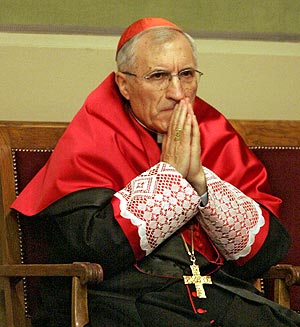
This is Cardinal Rouco’s Speech at the Presentation of Kiko Argüello’s Book “Annotations” in Berlin
It is the first speech by an excellent theologian and Canonist, as well as Archbishop Emeritus of Madrid, who has always accompanied and sustained Kiko and Carmen with intimacy, love and affection. In this speech, Cardinal Rouco describes the social and ecclesial environment during the last years of the Second Vatican Council in which the Lord had inspired Kiko through the Virgin Mary, to form “Communities that live in humility, simplicity and praise. The other is Christ”. Prophetic inspiration that we see happening today.
Cardinal Rouco: Dear Ladies and Gentlemen,
It is a great honor and a real joy for me to present to you the book “Annotations, 1968-2014” by Kiko Argüello, the founder of the “Neocatechumenal Way” together with the recently deceased Carmen Hernández and Father Mario Pezzi. Refusal to translate the Spanish word into German indicates that the singularity of this book is quite clear: are just they simple annotations? Simple notes to a personal and church resume? Autobiographical notes? Or perhaps is it simply a diary reduced to a certain period of time?, taking into account that the distribution of the text is made in the form of notes, in a certain inconstant form of events, encounters, spiritual and religious experiences and intimate prayer experiences described poetically. The first entry is dated July 11, 1989 in Pieve di Calore; the last one on August 20, 2014 in the cave from the Moratalla mountain near Caravaca de la Cruz in Murcia, Spain.
After an intense reading, a word occurred to me, in my opinion, more apt to name to the book: confessions.
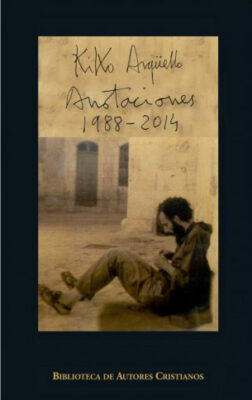
1. Yes, the author acknowledges himselft as a prodigal son, not only of the Church but also of God, who received extraordinary grace through the maternal closeness of Mary, the mother of the Lord, namely, the grace of an overwhelming conversion of his soul to Jesus Christ, your Lord and Savior. His effusive merciful love touched his heart in the decisive years for the future of a person, such as the years of human and spiritual growth during one’s youth: decisive for the salvation or misfortune of man. This is how he expressed it: “You approached me and I crucified you. You did not resist evil, you did not escape, you continued loving me, you wanted to enter me. I killed you when your ‘I’ became a ‘You’. You offered yourself for me, a murderer, and God the Father accepted your offering and resurrected you. He forgave me and you made me flesh with you forever. The love I did not know appeared “(an. 22).” Oh, what a pain life and my sins are, without You!” (an. 18). Coming from a good middle class family, well situated in Madrid, the talented young painter – who had won the national award of Spanish painting at the end of the 50s of the last century and with a promising future- he was plunged into a very deep spiritual crisis and he felt called by the Lord to share destiny with the poor of the suburbs of Madrid. A city with swampy suburbs, it was growing to become a city of millions of inhabitants, loaded with a huge social problems. Thus was how Madrid found itself, the capital of Spain, some twenty years after the end of the civil war. With a bible in hand and a guitar at his back, the young painter Kiko Argüello with long beard and neglected clothing- a true hippy! – went to the most poor in body and soul who were in the shanty town of the abandoned periphery in the great city that was growing at a rapid demographic and architectural rate. A brave, direct announcement was important to him and at the same time humble, of the evangelical Kerygma to the men that the power of sin and death had damaged in a degrading way, in the most elementary aspects of human dignity. With those poor, Kiko shared table and shelter, friendship and helpfulness, in a word, his destiny: with Mariano who was drunk so many nights, with Joaquín and Antonia, José Agudo and Rosario… with Mr. Juan, who “slept in the garbage ”and with Carmen “dos”, Mariano’s wife and with the “pimp crutches”, who asked for alms in the subway… and with many others. And later also with the fifteen scrawny dogs, who joined him and followed him… and they chased him! To the bus and the metro station Atocha, until the police stopped them and expelled them from there. “The dogs were accompanying me so happily, he says, up the stairs. It was useless to say that the dogs were not mine…” In that neighborhood humanly desolate – it was called “Palomeras” – perhaps the first small neocatechumenal community was born.
The classes Professor Pedro Farnés’ in the pastoral institute of Madrid, in which the meeting took place with Carmen Hernández, meant for him the intellectual discovery of the theological depth existing in liturgical and ecclesial renewal and of the Second Vatican Council, which would give a solid and healthy foundation n the ecclesial and spiritual form of the first communities neocatechumenals, in regards to the liturgical, catechetical and doctrinal practice. At the time of the birth of the neocatechumenal way, pastoral understanding, canonical support, and sympathy were not lacking in the first archbishop of Madrid, D. Casimiro Morcillo, one of the distinguished figures of the world episcopate modeled by the Council Vatican II. In that really adventurous start of a new way of evangelization in the catholic and apostolic spirit, Kiko Argüello felt the closeness of the Lord who noted that it made him emotionally tangible: “My life was You, Lord, and your continued presence”:
“My Jesus …
Love, your love to me,
total, absolute, infinite,
full of tenderness and compassion.
You are true, Lord.
I would like to be and be in You,
dawn of love, eternal life.” (an. 459)
The answer to the question of evil – “ what mystery is evil, why? It steals, lies, commits adultery, it murders, it kills himself… reason maddened and the soul sunk ”- it is He, his mercy!:
“By the hidden path,
in that dark jungle,
by the secret scale in disguise
of thousands of woes of love,
with a hurt soul …
O Jesus, have mercy on me!”
“Make me one, perfectly one, in You.” (an. 456-461)
2. Confessions of an extraordinary charism received and accepted for the good of the universal Church.
It was the spiritual-historical time of a conciliar experience of epochal dimension in the history of Church. A time full of pastoral questions, doubts and confusions; but also of great courage determined in the pastoral and theological field. At that moment in the Church’s history of salvation the gifted the Lord, his divine founder, his head and supreme pastor true and invisible, as it happened in all its historical epochs transitional renovators, with those particular gifts of the Holy Spirit, that is, with those “Dona” “charismata clarissima”, of which the Second Vatican Council speaks in a clairvoyant way in the dogmatic constitution on the Church Lumen Gentium (cf. LG 12).
The conversion that Kiko Argüello lived in the time before the council – an unconditional return to the house of the Father! – was not only spiritual, but also apostolic and ecclesial and in such a revolutionary way that for him, the following of Christ was only conceivable in the form of apostolic existence in the view entrusted with the mission within the ecclesiastical community and outside its external and internal borders. He ached in the depths of his heart not only his sin but also the sin of his contemporaries, especially the sins of men of which was a Christian Europe and his native land, Spain: “I am a despicable and hypocritical being, Jesus, my Lord, come. Help me. Only in you do I find love for others. I am moved by their miseries and sufferings, and I think … if only they knew your love … You were kicked out of the city. They took you out from it as garbage is removed, as the expiatory male was removed on which the sins of all had been invoked ”(an.24).
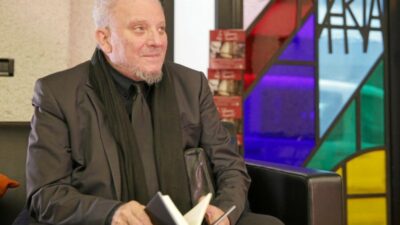
It was made urgent to announce the Kerygma again in all its evangelical clarity, openly and publicly. “The new evangelization”, which Later, Saint John Paul II requested and encouraged in such an energetic way and insistent throughout the time of his pontificate, it lived a new dawn. The words that the Holy Virgin Mary had addressed to Kiko Argüello on August 8, 1959, according to his testimony: “we must make Christian communities like the Holy Family of Nazareth, which live in humility, simplicity and praise; the other is Christ ”(an. p.V) were like the undoubted premise for his fruitful Christian fulfillment.
In view of the deep widespread crisis of faith the Christian world was in, and in particular the European continent, the small ecclesial communities turn into something essential. (“European culture gives the impression of being a silent apostasy on the part of self-sufficient man who lives as if God did not exist. ” So what the Holy Father John Paul IIindicated in his postsynodal apostolic exhortation Ecclesia in Europe dated June 28, 2003, n. 9). The proper and almost essential path to achieve the goal of small ecclesial communities would be the establishment and practice of a renewed catechumenate for the baptized inspired by the catechumenate of the Early church in the first centuries of its history. Reading Kiko Argüello’s annotations, you can see how the new charisma of the neocatechumenal way has been developed from the spiritual, ecclesial, pastoral and canonical point of view in the last five decades of the history of the contemporary Church. In the face of theological misunderstanding and above all pastoral on the part of many in the Church – both clerics as well as laymen – there has been the enthusiastic reception of not just a few priests and faithful, for whom a new spiritual and apostolic horizon has been opened. A horizon in which it becomes more and more evident that a renewed evangelizing concept was possible and affordable and truly Christian, certainly in the sense of an authentic assumption and faithful to the teaching of the Second Vatican Council, as it presents both in the dogmatic constitution Lumen Gentium on the Church and in the pastoral constitution Gaudium et Spes on the Church in the modern world.
Following the narrative thread of the Annotations, which contain and transmit many notes, it is verified how the initiator of the neocatechumenal together with Carmen Hernández and Father Mario Pezzi, travels the entire world in a timeframe of barely two decades at an impressive speed, tired almost to exhaustion, to announce themselves the Kerygma of the risen Lord, meet with the “itinerants” and encourage them, have meetings with the brothers of the neocatechumenal communities and reinforce them in his sending them out to the world, particularly regarding brave testimony and at the same time, the humilty of the Christian family. The obstacles inside of the Church emerge. The rejection of priests and bishops, the Catholic hostilities and often biased and false information through ecclesiastical social media that do a lot of damage. These also cause defamation campaigns run by information centers hostile to the Church and they confront the founder of the “Way”. On June 1, 2001 he wrote Kiko: “I am coming out of a terrible trial or temptation. I have known the pain of suffering the slander, the treason and the lie. They have denounced with falsehoods. They have given me away with lies. They have sentenced, they have condemned me without listening to me. The Lord gave me enemies ”(an. 337). What particularly deeply hurt was the ugliness of the contemptuous criticism that in Madrid, public opinion is spread in a lacerating and humiliating way against the paintings that held in the apse of the cathedral of “la Almudena” on the occasion of the wedding of the Spanish crown prince don Felipe and doña Letizia. Thursday June 2, 2004 Kiko wrote: “I return to these pages after having been shaken, exposed to public mocking, insulted … ”(an. 386).
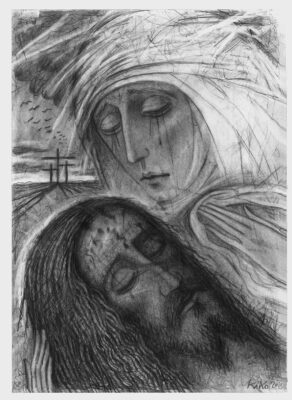
The consolation that he would experience, however, on his path of human and ecclesial suffering was thus bigger and warmer. Canonical recognition of the “Way” through the Popes, of Blessed Paul VI, of Saint John Paul II and Benedict XVI always came at the right time when opposition from friends and enemies grew and the strength of the “Seducer” of souls seemed increasingly stronger. After the praising letter of Paul VI at the beginning of the seventies of the century passed in the first post-conciliar period, came the approval of the statutes through John Paul II on June 29, 2002; to this one they followed the final authorization by Benedict XVI on June 13 2008 and the catechetical directory of the Neocatechumenal Way in January 2012. High esteem for the founder of the “Way” that Saint John Paul II showed him and said to him was moving. On September 25, 2002 after the approval of the statutes, Kiko said: “The Pope received us at Castel Gandolfo. We were all itinerants, pastors and those responsible for the oldest communities. To Carmen and me, when we went to greet him, he kissed us, showing in front of all the love that you have for us Lord, give the Pope health, strength prophetic and consolation! ” (an. 376).
The communities of the “Way” grew worldwide, the number of itinerants was increasing, without interruption, “Redemptoris Mater” seminaries were founded each time in more dioceses worldwide; a new creation appears so far unknown of the Missio ad Gentes: families in mission. The meetings with groups of bishops from all over the world increase more and more, meetings that take place in different countries or at the “Domus Galilaeae” by the sea of Galilee. These meetings take place as very encouraging spiritual occasions to deepen and care for the true sense of hierarchical “communion” in the Church. Kiko was appointed often by Popes John Paul II and Benedict XVI as “auditor” in the episcopal synods that they convened. The signs of ecclesiastical esteem towards the “Way” are repeated and multiplied continuously.
3. Have the internal and external tribulations of body and soul already passed in Kiko?
If one reaches the reading of the last book entry in 2014, it is perceived how much in the deep in his heart as in his personal existence, the spiritual experience of the “dark night of the soul” affects him in a way ever more purifying and sanctifying to the end. In “Annotations” by Kiko Argüello shines a unique figure at the end and outlined of a Christian spirituality that conforms to the “signs of times”, that is to say to the deepest internal need of current man. In the most difficult circumstances and in the most painful situations that Kiko had to go through in the Christian and ecclesial field, he logically sought the solitude of the desert to pray and contemplate. In the Moratalla grotto in Murcia, Spain, he always found shelter. The Christological and Marian piety on the other hand oozes lyricism in the multiple sentences in a poetic way; prayers that spiritually accompany the course of their whole lives, as reflected in the sequence of “annotations”. The daily spiritual reading of the sacred writing -of the old and new testaments- and the never abandoned spiritual treatment and taste of the psalms permeate and form his life of prayer. The theological and ascetic influence of the ancient “desert fathers” is mentioned on several pages of the “annotations”. The literary example and the fascinating spiritual experience of Saint John of the Cross in his Spiritual Canticle (with some quotes chosen from Saint Teresa of Jesus) confer on the internal and ecclesial personality of Kiko Argüello, the characteristic principles of classical Spanish spirituality. This is expressed in his latest poetry with which he ends the notes:
“I want to be, crying,
soul mate,
my Jesus,
a wounded deer that,
lost in the dark forest,
finds no comfort,
thirsty deer,
wounded deer” (an. 499).
“And live and live
in constant memory of You.
In these endless moments
that do not cease,
with my hurt heart” (an. 500).
Carmen’s death on June 19, 2016 filled him with pain:
“Why are you crying, my soul?
Why are you crying?
Carmen left with the Lord…” (an 506).
“How much does the Way owe to Carmen!” (an. 505).
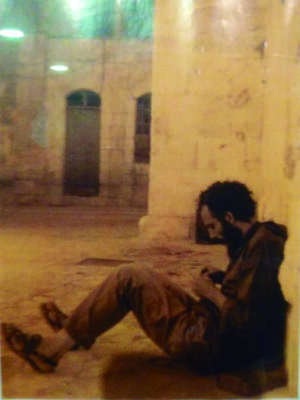
This confession book by Kiko Argüello – confessions of a life unconditionally given to the Lord and his Church, confessions of a extraordinary charism for the Church of the Second Vatican Council- in agreement with the evaluative description about the “Way” that our Holy Father Francis expressed on May 5 of this year before thousands and thousands of brothers who had come from all over the world to Rome, to Tor Vergata, to celebrate 50 years of its Roman beginning: “Dear brothers and sisters, your charism is a great grace from God to the Church of our time ”. Kiko knew very well – the words of the mother of the Lord, which he heard in his father’s house in Madrid in those distant days of his conversion, he never forgot them – that the “Way” as a wonderful charism for the Church of our century, there would not be possible without the intercession of Mary and that her “alone to alone” would not have taken place: “He says to you: There you have your Mother. Yes she helps me not to lower myself from God’s will, to not sin. She has known in his heart the pain of sin on the flesh of her son. She knows, she knows, she will help you. She, who is alive in heaven, prays for me.” (an. 180).
Kiko: Now it’s my turn. Do I speak spanish?
Card. Rouco: Er kann auf Deutsch reden, wenn er will, natürlich. (You can speak German, if you like, of course.)
Kiko: Thank you very much, Mr. Cardinal. I greet everyone. I’m in Germany, right? That I just arrived by plane. And I don’t know where we are there. Well, long live Germany. Long live Germany!
People: Long live! (Applause)
Kiko: Well, I this book … first thing, I want to say, I never thought of publishing anything. I had some notebooks and when I went to a grotto in Muratalla to pray, of my sufferings and anguishes, because I speak in the notebook and write there, what I can. The thing is, I’ve been carrying this book in my bag for thirty years and it was almost destroyed and Father Ezequiel says to me: Hey … I said to the father Ezequiel: Put this on the machine, because … well. And to translate it, to clean it up he told me: Hey, it’s fine, it would be fine, that you publish, it would do the brothers in the Way good. Don’t tell me, man. I’m ashamed. I say horrible things, that I’m stupid, a hypocrite and things like that, look. No, no … And I have accepted with humility, which it is published, thinking that it is useful to you … you are right Mr. Cardinal, that more than Annotations we must say Confessions. A groan of the soul, I don’t know, sufferings. What can I tell you, what do I have to accept with humility, that I am not humble at all, that God has chosen me. The fact that God chooses you for a work, then, implies that there would be suffering, well, I have to accept. Humility is not easy. I have to accept being here. Let the cardinal say these things like that of me, other things… well. And also, now you are going to listen to a symphony … But how is it possible, if I have not studied music? And the Lord has me make a symphony. The Lord is crazy. Well, well I have to accept this. Make music. How to be a painter, how to paint the apse of the cathedral, like … well. I have to accept to live, like God wants. And let there be criticism. Live, live. What a mistery! Live. Live and to die. And I hope that I don’t have much left. Live and die. And what is there after? s there something after? There is the Lord. Heaven is prepared for us, or hell. I hope the Lord welcomes me. Because loving Christ is the only truth. The rest is all vanity, say the fathers of the desert. Loving Christ. I try to love Christ, as I can. I love little and badly. Although yes, for me living is moaning and suffering. But I say to the Lord: But how is it possible, you have extended the Way, it is in 134 nations, thousands of communities etc. Carrying forward, well nothing … humble and accept everything from Him. Whatever. Well, then … What more do you want me to tell you? That you pray for me, so I don’t get lost. Do not think that it is easy to enter heaven. I don’t think so. Absolutely. I hope it is … The Lord is infinitely merciful. I don’t believe this. Yes He is merciful. But this does not mean that it justifies everything. No, no. Sin has enormous, immense value. So great is sin in the world and evil in the world, that God has sent his son to die for all of us. And this is a huge mystery. My sins, your sins, my sins, what a mystery. But thank God, that he offered his life for all of us and went up to the cross, that our sins may be forgiven. This is a huge thing. Loving Christ is the only truth. The rest is all vanity. Well here we are in this. I hope that if this book is of any use, then, blessed be the Lord. For this I have accepted, that it be published. And if it does good to the Germans, to you. Some of you, maybe you open it, to see: “Receive insults and love the enemy. Not judging is beginning to be humble.” Well, is not bad. “Judge judges. He judges, who believes, that he knows the truth and that it is his. Don’t judge! Receive insults. Love the enemy. Feel the heart lit by the fire that everyone knows to the Holy Spirit, that they receive the love of God. Blood and life of God. Death, victory. Already little Mary under the cross with him sword in the soul. ” There are things like that written. “How could I? Lord, I want to do your will. Love of one’s neighbor is your will. The other is Christ. Give me the grace of your Spirit to love the other, as you love him. Only your Spirit pushes me and helps me climb the cross. Thousands of demons want to devour me. Woe to me, I’m going to condemn myself. I am a arrogant, lustful, lazy, vain. Woe is me, I betrayed you. Alas, I jeopardize everything you do. ” “Two paths: Or I give life to my neighbor. Or I kill him with my sins. A thousand demons surround me, in the name of the Lord I will defeat them. In your name I will humble myself, by your name I will win and I will be left with nothing, only with you.” Today Virgin of Carmen – July 16. There are so many of my sins. Holy Mother of Jesus intercede for me. ” Etc.
Well, they are like this confessions. Outlets of the soul. I say to the Lord: But what do you want from me? Who I am? What do you want to do with me? Have mercy on me. Have pity. That living is difficult, have mercy on me. So, well, the Lord wanted me to come here to Germany, to be here and to tell you a word, as I can. Well, be good and pray for me.